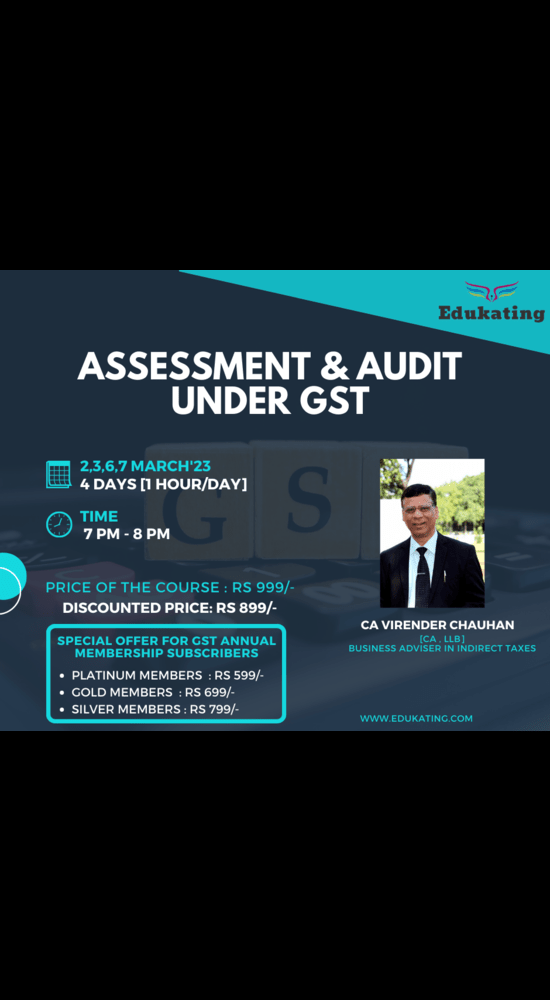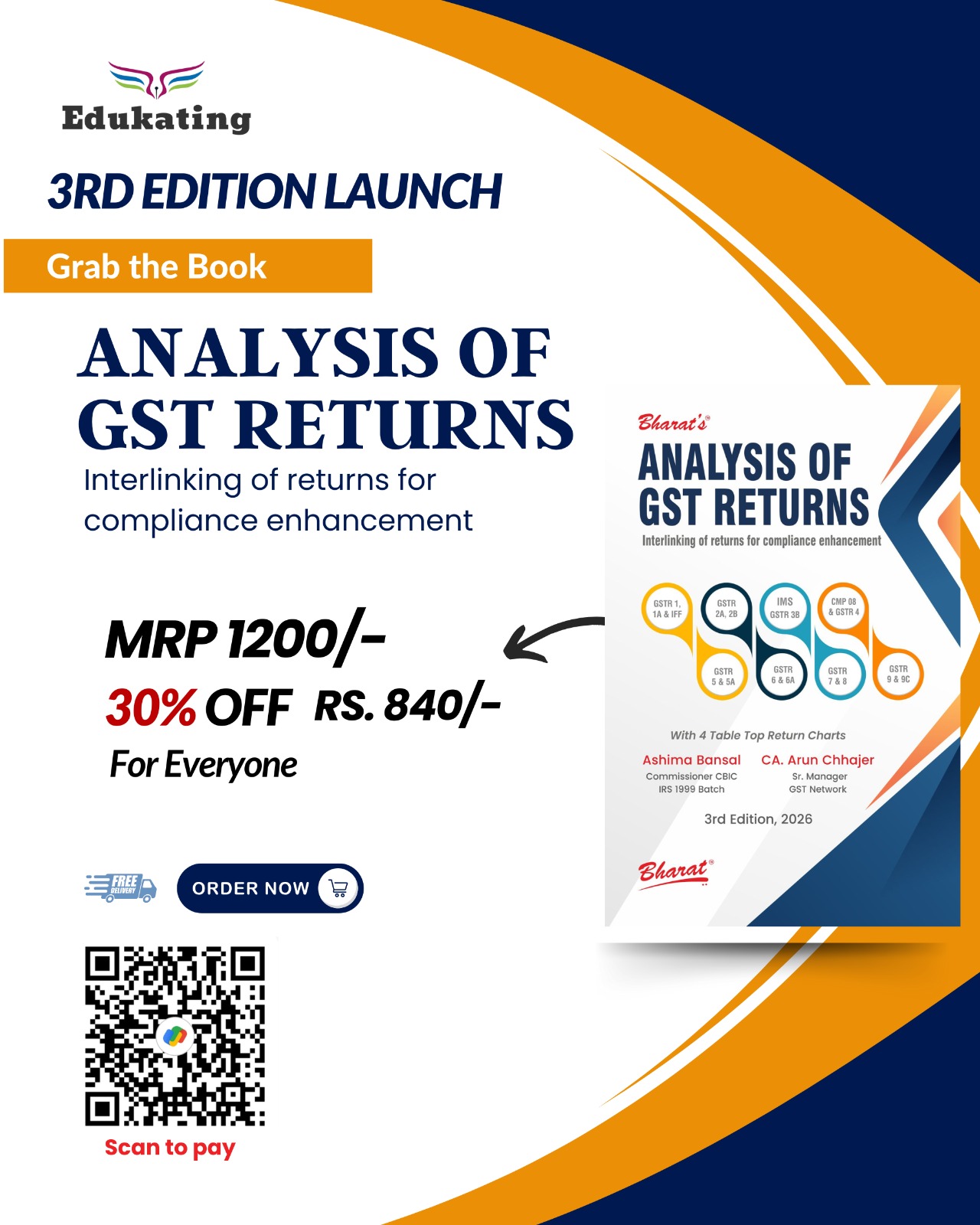Qualifications and Disqualifications of Auditors
Section 141(1) and Section 141(2) of Companies Act, 2013 has prescribed the provision regarding the eligibility of a person/firm to be appointed as an auditor.
- Summary of Section 141(1) and Section 141(2) of Companies Act, 2013 is as follows
A Person can be appointed as an auditor if he is a Chartered Accountant as per the provisions of Chartered Accountant Act, 1949 and holding a valid certificate of practice (COP) acting in the capacity of :
- An Individual
- Partnership Firm
- LLP
- Further, Section 141(3) has prescribed a list of persons not eligible for appointment as an auditor of the company:
a) A body corporate other than LLP
b) An officer or employee of the company.
c) Partner or who is in the employment of an officer or employee of the company.
d)Relative or Partner shall not be eligible for appointment when such relative/partner :
- holds any security/interest in the company or its subsidiary or of its holding or associate company or subsidiary of such holding company,
- is indebted to the company or its subsidiary, or its holding or associate company or subsidiary of such holding company.
- has given guarantee or provide any security in connection with the indebtedness of any third person to the company or its subsidiary, or its holding or associate company or a subsidiary of such holding company.
- However, a relative can hold security or interest in the company not exceeding the face value of Rs. 1000 or Rs. 1,00,000 as prescribed by the Rules.
d) is indebted to the company or its subsidiary, or its holding or associate company or subsidiary of such holding company, in excess of Rs. 5 lacs rupees.
e) A person or a firm who (whether directly or indirectly) has business relationship with the company, or its subsidiary, or its holding or associate company or subsidiary of such holding company or associate company.
f) A person whose relative is a director or is in the employment of the company as a director or key managerial personnel.
g) A person :
- who is in full time employment elsewhere or
- a person or a partner holding appointment as its auditor is at the date of such appointment or reappointment holding appointment as auditor for more than 20 companies
h) A person who has been convicted by a court of an offence involving fraud and a period of ten years has not elapsed from the date of such conviction.
i) Any person whose subsidiary or associate company or any other form of entity is engaged as on the date of appointment in consulting or specialised services in reference to provision of Section 144 of the Companies Act, 2013.
- According to Provisions of Section 141(4) of the Companies Act, 2013, where a person appointed as auditor of the company incurs any of the disqualification mentioned in Section 141(3) of the Companies Act, 2013 after his appointment, he shall vacate his office as such auditor and such vacancy shall be deemed to be casual vacancy in the officer of the auditor.
- Section 144 of Companies Act, 2013 has prescribed the list of services to not to be rendered by an Auditor [Prohibited Services]
a)Accounting and Bookkeeping services;
b)Investment Banking Services;
c) Investment Advisory Services;
d) Design and Implementation of any Financial Information System;
e) Internal Audit;
f) Actuarial Services;
g) Rendering of Services;
h) Any other kind of services as may be prescribed.
- Signing of Auditor’s Report [Section 145 of the Companies Act, 2013] : Auditor shall sign the Audit Report of the Company.
Any qualification, observation or comments on financial transaction matters, which have any adverse effect on the functioning of the company mentioned in the auditor’s report :
- Shall be read before the company in the General Meeting AND
- Shall be open to inspection by any member of the company.
- Powers and Duties of Auditor [Section 143 of Companies Act, 2013]:
- It is the duty of the Auditor to comment & form an opinion, according to the best of his knowledge & belief and as per the information & explanation received by him and conclude whether the financial statements of the company are showing true & fair view or not.
- It is the duty of an Auditor to report on below mentioned matters:
a) Whether the auditor has received all necessary information & explanation which were necessary for conduct of audit & if not then details thereof,
b) Whether the client has maintained proper books of accounts as required by the law.
c) Whether branch audit report u/s 143(8) received by the auditor of the company or not.
d) Whether P&L A/c , Balance Sheet as prepared as per Books of Accounts.
e) Whether financial statements comply with the Accounting Standards
f) Whether any Director is disqualified u/s 164(2) of Companies Act, 2013.
g) Auditor’s observation, comment or qualification on those financial transactions which have adverse effect on the functioning of the company.
h) Adverse remarks of the auditor on maintenance of accounts;
i) Whether the client has maintained its internal financial control in relation to financial statements in a proper manner or not.
j) Such other matters as may be prescribed.
- Auditor’s right to attend General Meetings of the Company [Section 146 of Companies Act, 2013] :
a) All notice of any General Meeting shall be forwarded to the auditor of the Company AND
b) He must attend any General meeting either by himself or through his Authorised Representative qualified to be an Auditor AND
c) Shall have the right to be heard at such a meeting on any part of the business which concerns him as the auditor.
- Punishment for Contravention [Section 147 of Companies Act, 2013]:
- In case of an Auditor : If an Auditor of a company contravenes any of the provisions of Section 139, Section 144 or Section 146 of Companies Act, 2013, then such auditor shall be punishable with:
a) Fine shall not be less than Twenty-Five Thousand Rupees but which may extend to Five Lakh Rupees OR
b) Four times the remuneration of the auditor.
- In case of Company : If any of the provisions of Section 139 to Section 146 [both inclusive] is contravened :
a) The company shall be punishable with fine which shall not be less than Twenty-Five Thousand Rupees but which may extend to Five Lakh Rupees AND
b) Every officer of the company who is in default shall be punishable with fine which shall not be less than Ten Thousand Rupees but which may extend to One Lakh Rupees.






























































